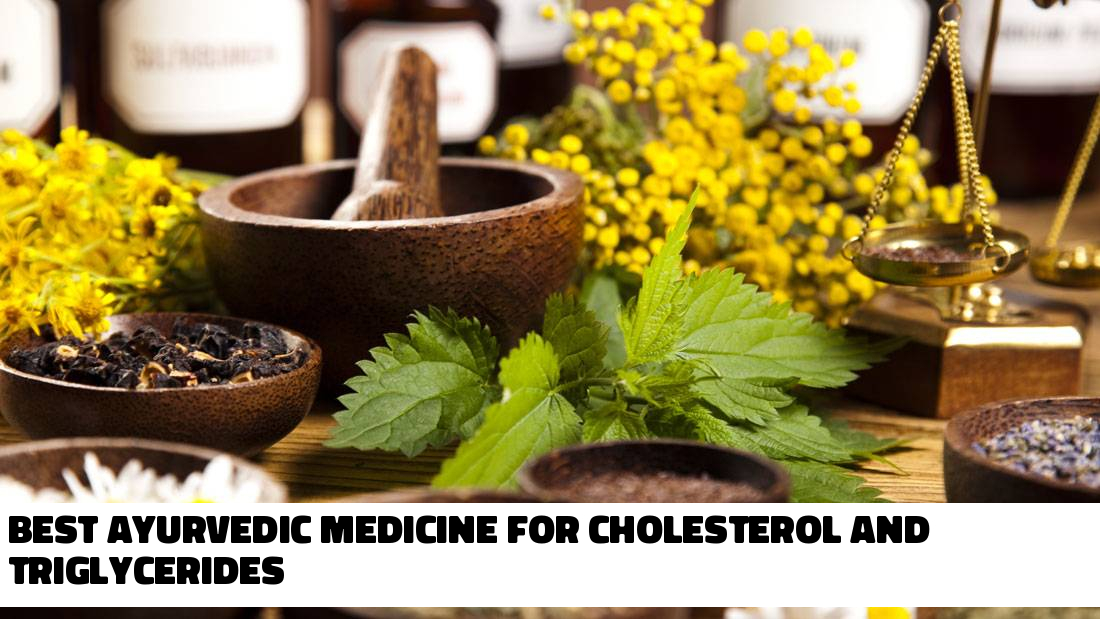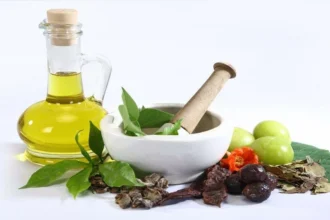High cholesterol is a major health concern worldwide, contributing to life-threatening conditions like heart attacks, strokes, and atherosclerosis. While modern medicine offers various treatments, many individuals are turning to holistic alternatives. Ayurveda, an ancient Indian system of medicine, provides natural remedies to manage cholesterol and triglycerides effectively.
Understanding Cholesterol and Triglycerides
Cholesterol is a fatty substance in the blood, essential for hormone production, vitamin D synthesis, and digestion. It exists in two forms:
- Low-density lipoprotein (LDL): Often called “bad cholesterol,” high levels can cause artery-clogging plaque.
- High-density lipoprotein (HDL): Known as “good cholesterol,” it helps remove excess cholesterol from the bloodstream.
Triglycerides are another type of fat stored in the blood, derived from unused calories. High levels increase the risk of cardiovascular diseases, especially when combined with high LDL.
Ayurvedic Perspective on High Cholesterol
Ayurveda attributes high cholesterol to an imbalance in Kapha dosha, which regulates body fluids and fats. Excess Kapha slows metabolism, leading to fat accumulation. Ayurvedic treatments focus on balancing doshas, improving digestion (Agni), and eliminating toxins (Ama) through herbs, diet, and lifestyle changes.
Top Ayurvedic Medicines for High Cholesterol and Triglycerides
1. Arjuna (Terminalia Arjuna)
Arjuna is renowned for its heart-protective properties. It reduces LDL cholesterol, increases HDL, and strengthens heart muscles.
- How it works: Contains antioxidants that enhance fat metabolism and promote cholesterol excretion.
- Dosage: 1-2 grams daily in powder or tablet form.
2. Guggulu (Commiphora Mukul)
Guggulu contains guggulsterone, a powerful lipid-lowering compound that enhances liver function and breaks down lipids.
- How it works: Reduces LDL and triglycerides while boosting HDL.
- Dosage: 500 mg to 1 g extract, taken twice daily after meals.
3. Triphala
A blend of three fruits (Amalaki, Haritaki, Bibhitaki), Triphala detoxifies the body and improves fat metabolism.
- How it works: Balances doshas, reduces Kapha accumulation, and prevents cholesterol buildup.
- Dosage: 1-2 teaspoons mixed with warm water before bedtime.
4. Ashwagandha (Withania Somnifera)
An adaptogenic herb that reduces stress-related cholesterol and oxidative damage to the heart.
- How it works: Lowers inflammation and cholesterol levels.
- Dosage: 300-600 mg extract daily.
5. Fenugreek (Trigonella Foenum-Graecum)
Fenugreek seeds are rich in soluble fiber, which lowers cholesterol absorption.
- How it works: Reduces LDL and triglycerides while improving insulin sensitivity.
- Dosage: 5-10 grams soaked or powdered daily.
6. Coriander (Coriandrum Sativum)
Coriander seeds have lipid-lowering properties that help break down fats.
- How it works: Stimulates digestion and reduces cholesterol.
- Dosage: Boil 1-2 teaspoons in water and drink daily.
7. Garlic (Allium Sativum)
A natural heart remedy, garlic prevents LDL oxidation and improves circulation.
- How it works: Allicin compounds lower cholesterol and promote cardiovascular health.
- Dosage: 1-2 raw cloves or 300-600 mg extract daily.
Ayurvedic Diet for Managing Cholesterol
A Kapha-pacifying diet helps in lowering cholesterol by eliminating heavy, processed foods and incorporating light, nutritious options:
- Fruits & Vegetables: Leafy greens, berries, and citrus fruits support heart health.
- Whole Grains & Legumes: Oats, barley, lentils, and beans help reduce cholesterol.
- Healthy Fats: Opt for moderate amounts of ghee while avoiding trans fats.
- Spices: Turmeric, cinnamon, and black pepper enhance digestion and fat metabolism.
Ayurvedic Lifestyle Tips
- Exercise: Walking, yoga, and swimming aid cholesterol management.
- Stress Management: Meditation and pranayama (breathing exercises) lower stress-related cholesterol spikes.
- Adequate Sleep: Proper rest supports metabolism and heart health.
Diseases Linked to High Cholesterol
Uncontrolled cholesterol levels can lead to serious conditions, including:
- Non-Alcoholic Fatty Liver Disease (NAFLD): Ayurveda links NAFLD to Yakrith Roga, focusing on liver detoxification.
- Atherosclerosis: Cholesterol plaque buildup narrows arteries, increasing heart disease risk.
- Coronary Artery Disease (CAD): Blocked arteries reduce oxygen supply to the heart, leading to angina and heart attacks.
References –
https://infinitymarketresearch.com/ayurveda-market/1045
https://infinitymarketresearch.com/reports/category/healthcare/life-science
https://infinitymarketresearch.com/reports/category/healthcare/medical-device
https://infinitymarketresearch.com/reports/category/healthcare/pharmaceutical
https://infinitymarketresearch.com/reports/category/healthcare/healthcare-it
https://infinitymarketresearch.com/reports/category/healthcare/healthcare-services






